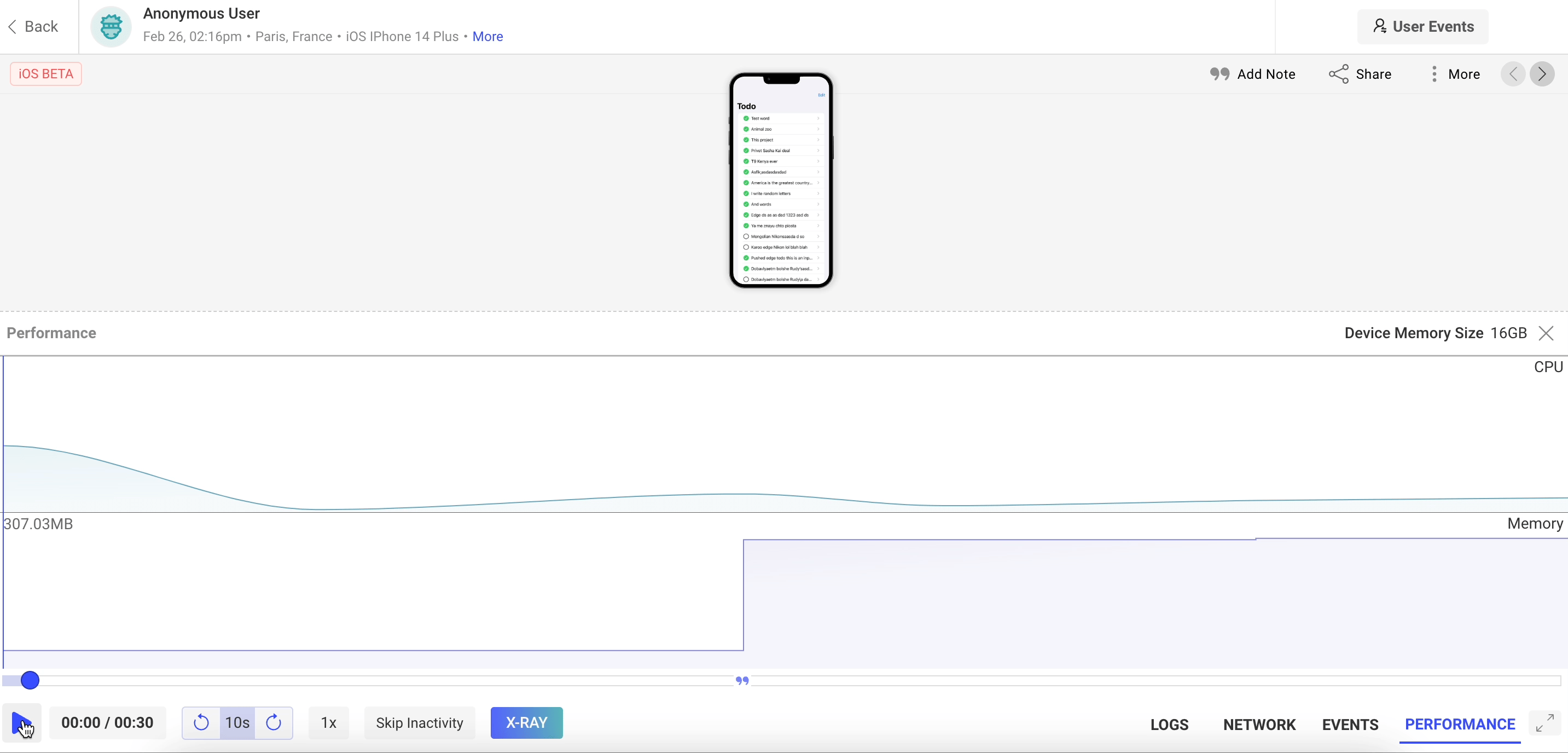Session Replay for React Native

Did you know that you can see exactly how your users interact with your React Native app? You can replay every action they perform—taps, swipes, scrolls, and more—as if you were looking over their shoulder. And it doesn’t stop there. You can identify the root cause of any issue they encounter, catch bugs, pinpoint app performance problems and fix them with ease.
But how is this possible? Well, the answer lies in session replay tools.
Using OpenReplay, the session replay tool that you can self-host, developers can record, replay, and troubleshoot issues in their apps quickly. This ability makes retaining users and understanding app issues a manageable task.
And today, we’re expanding our capabilities to include support for React Native on iOS. This expansion allows developers to use OpenReplay’s potential for web and mobile applications, improving user experience on all platforms.
Introducing OpenReplay for React Native on iOS: what is included?

Image source: app.openreplay.com
Full-fledged DevTools
OpenReplay includes comprehensive debugging tools such as crash analytics, network payloads, and performance metrics. These features can get you hold of the entire context, simplifying the process of identifying and resolving issues.
Smart heuristics
Our tool intelligently identifies potential issues that may frustrate users, like click rage or recurring crashes.
Customizable tracking
With the OpenReplay SDK, developers have the flexibility to customize session tracking. This means you can tailor what data you collect to suit your app’s specific needs, capturing everything from user interactions to subtle changes in app state.
Self-host
Host your React Native app sessions on your own with OpenReplay’s self-hosting option, ensuring data ownership, security, and compliance.
All-you-can-capture
Get a dedicated cluster that comes with all the core features of OpenReplay, along with additional features such as Single Sign-On (SSO) and conditional recording. There are no limits on recording or retention.
Benefits of using OpenReplay for React Native on iOS

Image source: app.openreplay.com
Fast bug identification
By visually replaying user sessions for React Native apps, developers can see exactly what went wrong. This direct insight into user interactions eliminates guesswork and accelerates the debugging process.
In-depth analysis
OpenReplay goes beyond surface-level issues, allowing developers to understand the root causes of a wide variety of problems.
Optimize user experience
Armed with insights from OpenReplay’s dashboards and cards, developers can refine and improve their app’s usability and alleviate user frustrations. Enhancing user experience leads to higher satisfaction rates and, ultimately, more successful apps.
Setting up React Native in OpenReplay
Here is some information on setting up your app in OpenReplay, depending on the deployment type:

Cloud users
Sign up for OpenReplay and set up the tracker on your React Native (iOS) app. Post deployment, session recordings will start appearing. The SDK has all you need for tracking user sessions and customizing data.
Self-hosted users
To set up OpenReplay for your React Native app on your own server, simply visit our GitHub repository and follow the instructions provided. This will involve configuring the OpenReplay source code to suit your environment, and deploying it onto your server.
Conclusion
OpenReplay’s new support for React Native on iOS gives developers a tool to improve their apps. It allows for replaying user sessions, finding issues, and analyzing in depth. This helps improve the user experience and keeps the app working well.

